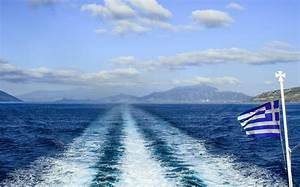Greek shipping companies are facing penalties of over €175m under the upcoming FuelEU Maritime regulations, according to OceanScore. The firm has analyzed the potential exposure for over 370 Greek-registered companies based on past GHG intensity. Tankers, RoPax, bulkers, and containerships are expected to bear the brunt of the penalties, with tankers and RoPax accounting for the highest amounts. The top three shipping companies could face a combined penalty of €25m, with the largest company facing the highest penalty of €11.75m.
Despite the significant compliance deficit faced by the Greek fleet, there are opportunities to offset these penalties by investing in alternative fuels and low-carbon technologies. OceanScore’s co-Managing Director Ralf Garrn emphasizes the importance of utilizing biofuels, low-carbon technologies, and the FuelEU pooling mechanism to minimize exposure. Greek LNG shipping operators, in particular, are well-positioned to benefit from FuelEU due to a high compliance surplus from using LNG as fuel, which can reduce emissions by 25%.
Switching to biofuels can help shipping companies reduce their carbon footprint in the short term, although these fuels are more expensive than fossil fuels. OceanScore highlights the potential cost savings and revenue generation from investing in biofuels to meet FuelEU compliance. The company has developed the FuelEU Planner tool to help shipping companies simulate different scenarios and assess the commercial impact of FuelEU compliance, providing visibility on cost-saving opportunities and alternatives to simply paying penalties.
Share it now



